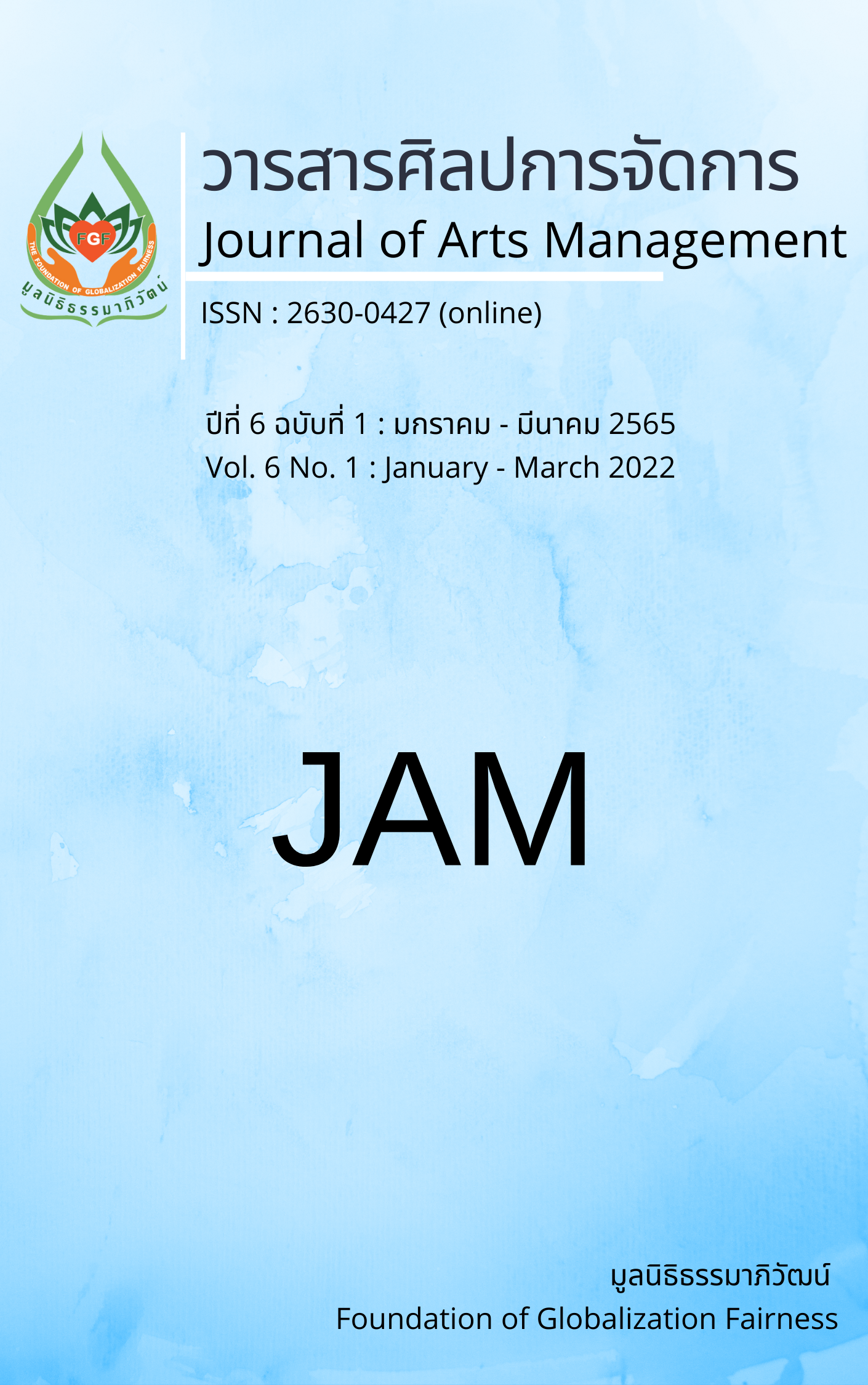Configuration, and the Link Pattern Educational Administration to Develop People Sustainably
Main Article Content
Abstract
The objectives of this research were: 1) to analyze the composition and linkage model for educational administration for sustainable development; 2) to analyze the confirmatory elements of the linkage model for educational administration for sustainable development; and 3) to analyze the figure model for educational management for sustainable development. The samples used in this research included 500 people. The tools used were interviews and questionnaires. Data analysis using descriptive statistics and Pearson's correlation analysis with ready-made computer programs and second-order confirmation element analysis computer programs.
It was found that the components and patterns of linkage for educational administration for sustainable development were appropriate and were classified into 5 key elements and 80 styles. Affirmative Elements, Models for Sustainable Development Educational Administration, were found that all elements were significantly related at the 0.001 level, with a correlation coefficient range from 0.063 to 0.535. The most correlated elements were management characteristics and Buddhist administrative elements. Where the elements are related and it is appropriate to analyze the linkage between education administration and sustainable development, very good able to be used to analyze patterns.
The linkage model for educational administration for sustainable development was found to be consistent with the empirical data (x2 = 95.99, df = 79, p = 0.09), which differs from zero. Significance The harmonization index (GFI) is 0.98, the modified degree of harmony index (AGFI) is 0.95, the square root of the residual mean (RMR) is 0.16 and the square root of the mean quadratic error of the estimate (RMSEA) is 0.02.
Article Details

This work is licensed under a Creative Commons Attribution-NonCommercial-NoDerivatives 4.0 International License.
Views and opinions appearing in articles in the Journal of Arts of Management It is the responsibility of the author of the article. and does not constitute the view and responsibility of the editorial team I agree that the article is copyright of the Arts and Management Journal.
References
Ayuwat, T. (2009). Best practices in academic administration of small-size basic education school[Doctoral dissertation, Silpakorn University].
Chayamarit, S. (2021). Human resource development to accommodate the public and private sector organizations in the digital age. Journal of Multidisciplinary in Humanities and Social Sciences, 4(1), 38–50.
Damnoen, P.S. (2021). The Development of Student Characteristics in According to the Nawaluk Framework of the Buddhist integration of Buddhapanya Sri Thawarawadee Buddhist College. Asia Pacific Journal of Religions and Cultures, 5(2), 126-135.
Mahachulalongkornrajavidyalaya University. (1996). Thai Tripitaka. MCU Press.
Mahasuthanon, T. (2002). Principles of management and management principles. Thanat Printing.
Maslow, A. (1987). Motivation and Personality. Harper and Row Publishers.
Ministry of Education. (1999). Ministry of Education and education reform driving. Shipping and Package Printing Organization.
Mongkolvanich, J. (2012). Organizational Administration and Educational Personnel. V. Print.
Office of the Education Council Secretariat. (2017). National education plan 2017 – 2036. Prikwan Graphic.
Phra Dhammakosajarn (Prayoon Dhammacitto). (2010). Managing a Buddhist organization, choosing Dharma to meet the problems through the crisis. Prachachat Business Newspaper.
Phumphongkhochasorn, P., Damnoen, P. S., Suwannaprateep, T., & Phoomparmarn, U. (2021). National Educational Standards and the Improvement of Thai Education System with World Class. Asia Pacific Journal of Religions and Cultures, 5(1), 75-86.
Pongsrirot, S. (1997). Organization and Management (7th ed.). Technic 19 Limited Partnership.
Potisuwan, J. (2021). Strategic leader behaviors. Journal of Multidisciplinary in Humanities and Social Sciences, 4(1), 135–148.
Puttaradomnoensuk, O., & Tonwimonrat, S. (2021). The transformational leadership of administrators and job motivation of teachers in school under Samutsongkram primary educational service area office. Journal of Multidisciplinary in Humanities and Social
Sciences, 4(3), 1172–1187.
Sararatana, W. (2003). Educational administration, principles, theory, functions, issues and analysis. Thiphawisut Printing.
Songsraboon, R., Thongtao, J., Damnoen, P. S., & Huanjit, P. S. (2021). Course Management Based on Outcome-Based Education (OBE) of Learning by Working in Real Conditions. Turkish Journal of Physiotherapy and Rehabilitation, 32(3), 20491–20499.
Srichan, A., & Usaho, C. (2021). A Needs Assessment of Developing Sub-district Quality School Management Based on The Concept of School as A learning Community. Educational Management and Innovation Journal, 4(3), 21-37.
Sudtae, K., Wongkasem, S., & Phoglin, S. (2010). Development of academic administration model for small sized schools. Rajabhat Maha Sarakham University Journal, 4(2), 127-136.
Tan, C. C., & Damnoen, P. S. (2020). Buddhist Noble Eightfold Path Approach in the Study of Consumer and Organizational Behaviors. Journal of MCU Peace Studies, 8(1), 1–20.


